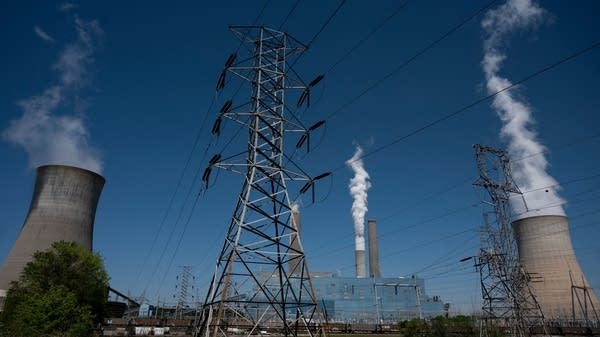Proposed tax credit could help protect homes against future natural disasters
Sen. Adam Schiff (D-California) explains who could be eligible.

Wildfires that destroyed 16,000 houses and other structures in Southern California. Floods in the Midwest and South that upended lives. Continued reconstruction in North Carolina following last year’s Hurricane Helene. As natural disasters become more severe and intense, recovery from such storms often tallies into the billions.
Knowing this, a prudent homeowner might want to add greater resilience to their property — a roof that doesn’t catch fire, double-paned windows to replace older single ones, barriers to keep out storm water, even lifting a home. Those are all options to harden a house against the most damaging effects of natural disasters, but they can come with steep costs.
Sen. Adam Schiff, a Democrat from California, and Sen. Tim Sheehy, a Republican from Montana, have an idea to help homeowners build resilience. Sen. Schiff recently joined “Marketplace Morning Report” host David Brancaccio to discuss. Below is an edited transcript of their conversation.
David Brancaccio: If this were to become law, people could write off half the cost of what?
Senator Adam Schiff: So, if you wanted to replace your roof with one that would be less likely to be set ablaze in a fire, it would be covered up to $25,000, 50% of the cost overall. But if you want to do brush clearance or other things to harden your home, whether against fire or flood or other natural disasters, this is way to do it. And you don't have to be a victim of a natural disaster in the past. You just have to live in a state where there's been a major disaster declaration, which covers most of the states. And you know the benefit is not just for the particular homeowner. What we saw in the tragic LA fires is when we had 100-mile-an-hour winds, you could have embers traveling a mile or two, go through a vent in a house, set that house on fire, and then that house would set the whole neighborhood on fire. And so, if you can harden that one home or several around it, you may save the whole neighborhood.
Brancaccio: Fine print here: Is it up to $25,000, if a family makes less than $200,000 a year, and it phases out above that?
Schiff: It phases out at $300,000, so above $200 [thousand] and going to $300 [thousand], there's a phase out. That's a compromise to try to get the broadest support possible. And we also want to make sure that we can help as many families as possible. What we've seen from some studies is that it not only pencils out in the end but also ends up saving five or six times the investment in that tax credit, in the cost of avoiding these incredibly costly disasters.
Brancaccio: You've started with some bipartisan support here, but does something like this get through this Congress with its focus on tax cuts?
Schiff: It is the kind of thing that can get through. Now, it could get swallowed up in the big tax cut bill or could be handled separately, but I think there'll be a lot of bipartisan support for the idea. It's the kind of thing that can move even in a highly partisan and polarized Congress.
Brancaccio: This is about money for disaster mitigation. It comes at a time when the Trump administration is seen as pulling the other way on that topic with cuts to disaster mitigation funds you saw from FEMA to places like, for instance, New York state. The administration's idea seems to be that states should pay for this kind of stuff.
Schiff: So, they are certainly moving in the wrong direction when it comes to protecting us from natural disasters. But you know, part from the spending cuts, they seem to have an insatiable appetite for tax cuts, and this is a form of a tax cut. It's a tax credit, so this might cut in the other direction. That's why I say, even in this environment, we have a chance of getting it done.







